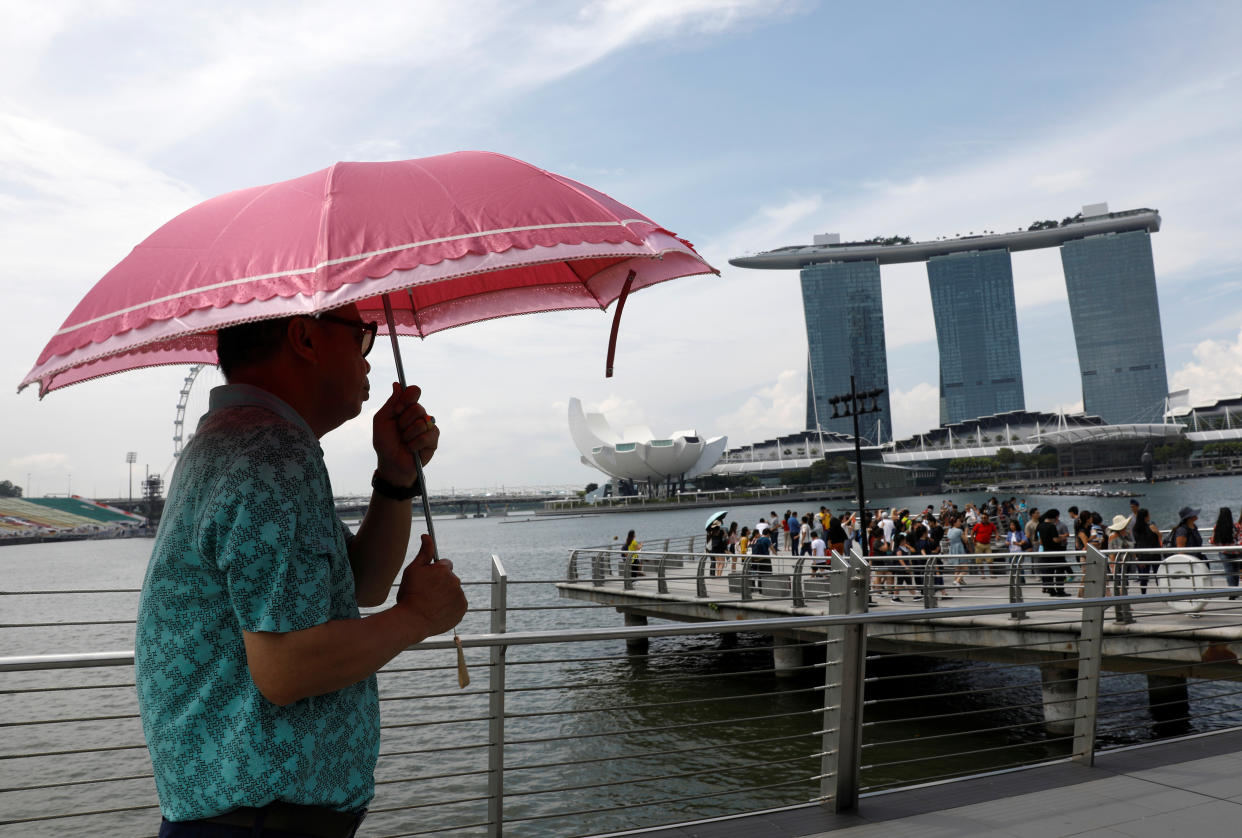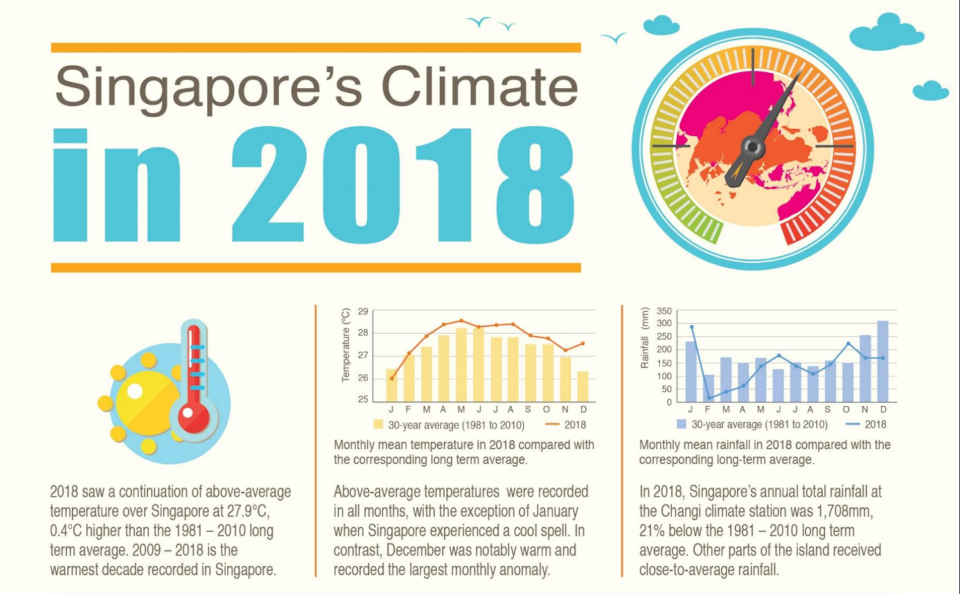2018 was one of the warmest years in Singapore, says Climate Assessment Report

Last year was the joint-eighth warmest year since Singapore first began recording temperatures in 1929, with an average temperature of 27.9°C, according to the 2018 Annual Climate Assessment Report released by the Meteorological Service Singapore (MSS) on Friday (22 March).
All of Singapore’s top-10 warmest years have occurred in the past 25 years, with eight of them in the 21st century. The warmest year was 2016, with an average temperature of 28.6°C.
According to the report, temperature records also show that the period from 2009 to 2018 is the warmest decade in Singapore. These are signs of long term climate change in Singapore.
Above-average temperatures in all months except January
In 2018, above-average temperatures were recorded in all months except January, when Singapore experienced an extended cool spell of five consecutive days from 10 to 14 January. This contributed to the monthly temperature of 26.1°C in that month, which was 0.4°C below-average.

In contrast to this cool start, the year concluded with a notably warm December at 27.6°C, 1.2°C warmer than the long-term average. This is the second warmest December since 1929, behind December 2015 (at 27.7°C).
The current rate of warming has had a significant effect on the annual cycle of temperature when
the most recent and warmest decade on record (2009-2018) is compared to the coolest decade
from the historical record (1967-1976). For example, in the last 10 years, January has been as warm or
warmer than the warmest month (May) in the 1970s.
Meanwhile, the 2018 annual total rainfall across the island was close to average. The largest shortfalls of rain were experienced during the first inter-monsoon period (February to April) and at the start of the Northeast Monsoon season (November and December).
By contrast, January, June, and October recorded above-average rainfall.
Longest cool spell, strongest wind gust
There were a couple of notable weather events in 2018. From 10-14 January, a monsoon surge brought five consecutive days of cool weather across the island, with the daily maximum temperature dropping from 33.2°C on 9 January to 24.3°C on 13 January.
The lowest daily minimum temperature was 21.2°C on 14 January. It was the longest cool spell Singapore has experienced in the last two decades.
On 30 March 2018, a thunderstorm brought strong wind gusts that caused substantial damage to chicken farms in Lim Chu Kang. The maximum wind gust of 133.3kmh recorded at the Tengah weather station that afternoon was the strongest wind gust recorded over Singapore since 2010.
Other Singapore stories:
Watain Singapore concert ban: IMDA to reach decision ‘soon’ on claim for compensation by organiser
Singaporean man arrested for faking kidnapping in Vietnam for money
Lawyers divided over police statement on past offence of man who drove PM Lee’s son



